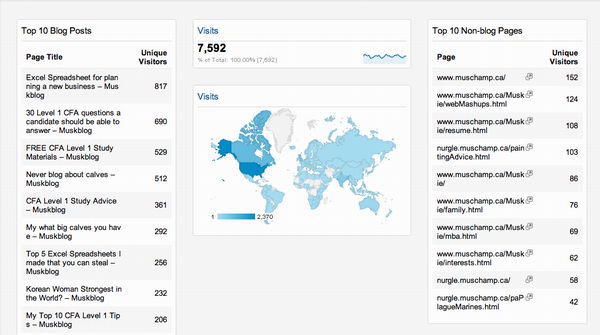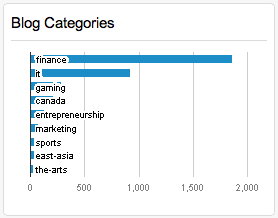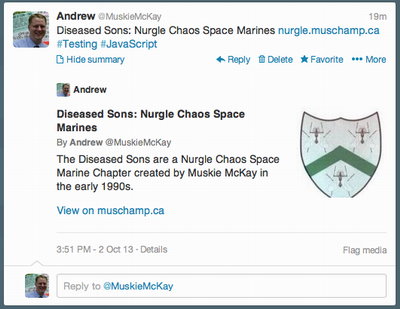Relatively Popular Content
October 16th, 2013
Most people online are obsessed with popularity. A lot of time and effort gets spent trying to become more popular. How can I get more followers? How can I get more likes? How can I get more fans? How can I get more hits? How can I get higher rankings? How can I sell more widgets? With all the time and effort spent obsessing over popularity, you’d think more time and effort would be spent contemplating Quality.
Alas most people aren’t interested in philosophy, I read on Twitter the other day, a venture capitalist’s claiming his favourite philosopher as Mike Tyson. I suggested Diogenes or Miyamoto Musashi. I doubt Diogenes will ever become popular in our consumption obsessed society but business people have adopted “The Prince” and “The Art of War” as their bible in the past so perhaps “The Book of Five Rings” is next. None of Diogenes’s writings survive so it is a testament to the originality of his thought that 2000 years later people still remember him. In 2000 years no one will give a care about Mike Tyson, he was no Spartacus.
I had this post pretty much written in my head, I took screen shots, it had a purpose, an introduction, perhaps even a conclusion, but I never got out of bed to write it. I prioritized improving the Quality of some older content, spending hours and hours on that over the last few weeks. Today, not much gets written with the expectation that it will still be relevant in 2000 years. That saddens me.

Relative VS Absolute Popularity

When I and others talk about popular content we mean popular compared to all the rest of the crap we publish or gets published online in the insignificant little niche in which we have some modicum of influence. Absolute popularity is what sells. Relative popularity is vanity.
When Klout first came out their algorithm determined Justin Bieber to be the world’s most influential person or at least the most influential person active on social media. I think President Obama has managed to surpass him after considerable effort and many changes to Klout’s algorithm. I entertained the idea of entitling a blog post “Kafka, Kierkegaard, and Kardashian”. The point being two of those names made a lasting impact on society, the third however is popular.
I don’t know what Kim Kardashian does. Her name is famous despite having no measurable accomplishments. In 2000 years no one will care about Kim Kardashian, but people will still be reading Kafka and Kierkegaard. Popularity does not equal Quality. Popularity does imply Influence. People buy stuff because Kim Kardashian bought the exact same thing. Klout and Google can both tell you what is popular, but can they tell you what is worthwhile?
Improving Quality
I’ve spent a lot of time lying in bed thinking, way more time than is healthy. I’ve read Kafka. I’ve read Kierkegaard and it is no surprise that the only reason I know of Kim Kardashian is supermarket tabloids. If you have higher aspirations than writing as well as a supermarket tabloid, you’re going to have to read something substantial. Quality does not imply Popularity.

I’ve filled my head with garbage I’ve read online since my MBA. Having a laptop and a smartphone has lead to me reading far less books than I did in my twenties. Over the last few months I’ve tried to improve the Quality of this website. I made four major improvements that may not be immediately obvious:
Now I need to wait and see if any of my efforts made a difference. Will I become relatively more popular?
The Future
I struggle to accomplish what I used to accomplish with ease. If I have any loyal readers they’ll know this all stems from what happened in March of 2005. I’ve devoted far too much time to this website and insignificant crap online. I keep trying to turn my life around and failing. I’m going to try to streamline my life further, unsubscribe from some RSS feeds, unfollow some Twitter accounts, stop blogging as often, instead try to learn something worthwhile, invest my time in self improvement.
All the changes I made to Muschamp.ca may have made it stickier. Google has recently made a major change to their algorithm. Bing has added Klout to their search results, maybe Klout will even learn to measure more than one WordPress blog or comments left through DISQUS. I don’t think I’ll ever be as popular as I was before March 2005, I don’t want to be popular, but I still help others.
Other people want to be popular, they want to sell more widgets. I just want to be happy.
If you want to be Popular…

I’ve already written some posts that may help, what you write about matters, the world’s most popular taxidermy blog isn’t a must read for most. How you present your writing online matters.WordPress is the world’s most popular content management system for a reason. Carefully chosen images matter, posts with images get shared more, especially if you take the time and effort to ensure properly functioning structured metadata; Facebook, Google, and Twitter will reward you with traffic.
Now that Google is keeping most of the keyword referral data, you need to ensure you know what content you have that is relatively popular. What people like, you should write more about. What people don’t care about, they won’t read. You should probably delete or edit older unpopular content. You need to encourage people to comment, to follow you via RSS or whatever social network you prefer. Don’t spread yourself too thin. You can’t be all things to all people. Focus and repetition are the keys to success as measured by algorithms.
If something you write does become relatively popular, improve it. Write a follow up. Retweet it yourself. I’ve been looking at web analytics since before Google existed. Google sends me over 65% of my traffic, this has been true for years and years, the pie chart shown is from almost eight years ago.
SEO does not trump Quality. No plugin will make you a better writer. No CMS theme will make you interesting or influential. Many people read the Internet on a smartphone or in a news reader, even the prettiest of pictures may be lost. You might think it is important to rank number one for a keyword, but unless you can monetize, it isn’t that important.
Quality lasts, ask Ozymandias.
I met a traveller from an antique land
Who said: `Two vast and trunkless legs of stone
Stand in the desert. Near them, on the sand,
Half sunk, a shattered visage lies, whose frown,
And wrinkled lip, and sneer of cold command,
Tell that its sculptor well those passions read
Which yet survive, stamped on these lifeless things,
The hand that mocked them and the heart that fed.
And on the pedestal these words appear —
“My name is Ozymandias, king of kings:
Look on my works, ye Mighty, and despair!”
Nothing beside remains. Round the decay
Of that colossal wreck, boundless and bare
The lone and level sands stretch far away.’
This post was inspired in part by a brief exchange with Tomasz Tunguz.
Almost 9 Years Later
I again wrote a year end blog post and reviewed Google Analytics to see what content had the Quality of timelessness and it was my writings on Excel spreadsheets and CFA® study materials I created which included a pair of Excel spreadsheets. If you have thoughts on online popularity or writing timeless content you can leave them below.
This entry was originaly posted on , it was last edited on and is filed under: Technology and tagged: Popularity, Quality, Social Media.


3 CommentsLeave A Comment Now